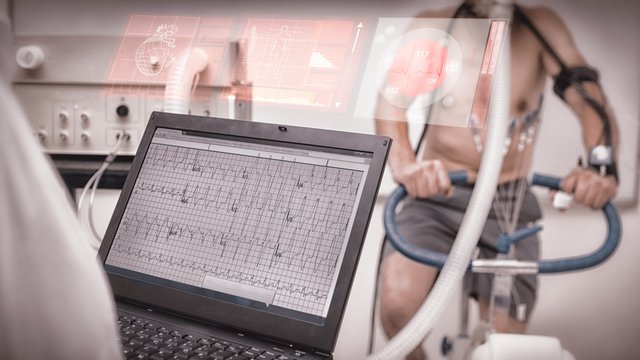
What is a sports scientist?
Edited on Oct. 2, 2023

We are used to hearing all the time the phrase "healthy mind in a healthy body". This message is intended to lead us to find the balance between our physical and mental health, which is key to improving our quality of life.
Who can help us to do this, and what are the specific tasks to achieve it? These questions are dealt with in depth in specialised studies such as the Sports Science Degree that we offer at our university.
In this article we will introduce the discipline known as sport science and get to know the more in detail the role that sports scientists have in their clubs and organisations.
Definition of a sports scientist
We understand sport science as the discipline that is based on the application of scientific knowledge and research in the field of sport in order to improve performance.
Sports scientists are therefore professionals who combine tools such as research, technology or data analysis with the practical experience of coaches and athletes. Their aim is to advise on the scientific aspects of sport and exercise.
Competencies of a sport scientist
Sports scientists are dedicated to the study and research of the scientific factors that influence sport and exercise. To become a professional within the sports science industry, you will need to acquire the following skills and competencies:
A solid scientific background with knowledge of biomechanics, physiology and psychology.
- A thirst for research.
- Knowledge of statistics and data analysis.
- Willingness to encourage and motivate athletes.
- Initiative.
- Observation skills.
- Ability to encourage communication.
- Ability to transmit information in a clear and simple way.
- Ability to provide useful information and give feedback on the performance of athletes.
- Perseverance, patience, commitment and dedication.
Tasks of a sports scientist
The sports scientist can be considered as part of a team's medical staff. However, the sports scientist will not be in charge of treating athletes for injuries or ailments. Unlike the physiotherapist, who helps them recover from injuries, the sports scientist will try to prevent and reduce the likelihood of injuries occurring.
In this way, sports scientists are able to work with athletes and improve their performance by evaluating them through various tests.
Once the results are analysed, these professionals develop a training programme that focuses on factors as diverse as psychological preparation, movement analysis and dietary issues.
Other roles of sports scientists
Driving improved athlete performance is not the only role a sports scientist can perform. Here are some other jobs that a sports scientist can do:
- Fitness consultants in a gym or fitness club: they assess the fitness of athletes and design personalised exercise programmes.
- Athlete coaches: teach or train athletes by holding a coaching qualification.
- Physical education teachers in schools, leisure centres or sports centres.
- Nutrition specialists: if they have a complementary qualification as a nutritionist, sports scientists can be responsible for cataloguing the individual needs and specific diets of athletes.
- Psychologists: If a sports scientist chooses to specialise in the field of sport psychology, they will be able to analyse the involvement of the brain and human intellectual capacity in various sporting influences (such as stress management in sport and physical endurance).
- Researchers: There are numerous journals dedicated to exercise physiology where sports scientists can publish articles on sports research, for example on the study and recording of physiological responses.
If you have an interest in fitness, health and wellness, and if you want to contribute to preventing many of the health problems faced by people who practice sport regularly, the profession of sports scientist may be right for you. Choosing the degree in sport science at Universidad Europea will give to the opportunity to gain the skills you’ll need to succeed via work placements and internships at leading sports organisations and clubs.
Article published on Aug. 11, 2023